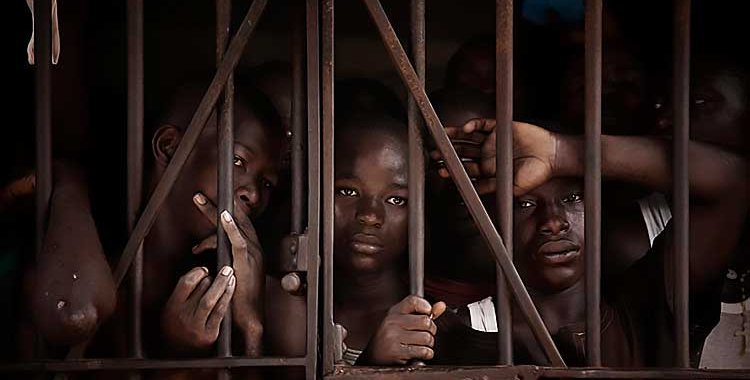"Overcrowding at no time is four times the installed capacity. Just to have an idea, the installed capacity in Viana County, the largest prison in Angola, is 2384 inmates and currently has a figure of 3900 inmates," said the spokesman for the Angolan Penitentiary Service, Menezes Cassoma.
In declarations to Lusa, the responsible indicated that the phenomenon of overcrowding occurs mainly in prison establishments in large urban centers, where "several citizens are hospitalized on a daily basis".
"Because of this situation, given the number of people who enter our establishments every day, we end up with above-average occupations," he emphasized.
The penitentiary system has 40 prisons throughout the country.
The Secretary General of the Revolutionary United Youth of Angola (JURA), a UNITA youth organization, Agostinho Kamuango, said last Thursday that prisons in Angola "look like former Nazi concentration camps" due to the "overcrowding and torture" to which prisoners and detainees are subjected.
"Without fear of making a mistake, our prisons look like former Nazi concentration camps, where prisoners are crowded four times more than normal," said Agostinho Kamuango.
The UNITA youth leader was among more than 100 youths who participated in the October 24 rally in Luanda, who were then arrested for a week and tried in summary form.
The youth, already at large for a week, some convicted and others acquitted, were accused of crimes of disobedience, riot and destruction of material goods.
According to the Penitentiary Service spokesman, the JURA leader's statements "are false" because he, Menezes Cassoma explained, "was not in a penitentiary establishment, but detained in police cells".
"For all we know, all the citizens who were deprived of their liberty after the demonstration were sent to the police cells and at no time entered the prison," he noted.
"For what Agostinho Kamuango said does not correspond to the truth," he said.
Kamuango also said that in prisons in Angola, the detainees "share the same space, in an above-normal capacity, without sanitary conditions, have a precarious meal a day.
He also expressed "concern" about the "high number of minors", between 12 and 15 years, in detention.
Regarding meals, Menezes Cassoma assured that in the 40 establishments that the penitentiary system controls at the country level "three meals a day are served" which results from "an effort by the system every day to improve the inmates' diet.
"From there we realized, once again, that these arguments must have come not from a prison establishment, but from a police station detention cell," he said.
About the alleged high number of minors in the prison system, the spokesman considered the information as "fallacious", guaranteeing that there are no minors between 12 and 15 years of age interned there.
Regarding the prison system, he noted, "there are sixteen-year-old prisoners, which is the age of criminal responsibility in the country," and in the system, he said, there is a facility in the province of Kwanza Sul "dedicated to youth detention.
Menezes Cassoma also refused that prisoners are crowded and sharing the same space, guaranteeing that in the prison system, prisoners "are compartmentalized according to the typicity of crimes" and their "prison condition.







